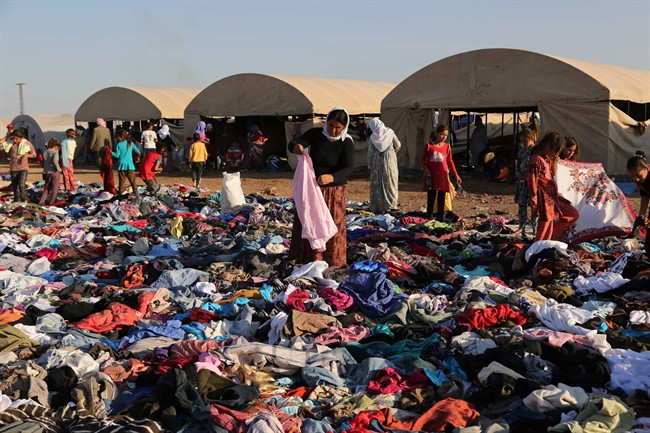OTTAWA – Funding delays of more than a year plagued two major Canada humanitarian assistance projects in Syria, while the military’s water purification system didn’t measure up during last year’s typhoon in the Philippines.

So says auditor general Michael Ferguson in his latest report, which explores, among other things, how well the federal government has been responding to humanitarian crises around the world.
The audit focused mainly on the Foreign Affairs Department, but included an assessment of how the Canadian Forces responded to Typhoon Haiyan in November 2013, which left 6,300 dead and forced more than four million people from their homes.
The report examined 42 Foreign Affairs projects totalling $172 million in response to eight global crises between April 2011 and the December 2013, including African drought and famine, floods in Pakistan and Central America, an earthquake in Guatemala and Hurricane Sandy.
The audit examined how Foreign Affairs funds specific projects in response to emergency appeals from the United Nations, the International Red Cross and non-governmental agencies.
The audit found “varying degrees of clarity” in department documents on how it decides to fund humanitarian aid projects.
The department agreed with the auditor’s recommendation that it needed to do more to better document the rationale behind the money it spends on specific projects.
Foreign Affairs also agreed with a recommendation to do more to monitor the timeliness of its responses to crises and disasters, which has cost the government an average of $567 million annually over the last five years.
Two projects in response to the long-running Syrian civil war were singled out for their long delays in delivering funds.
Two bilateral projects totalling $6 million in neighbouring Jordan, the desert kingdom that has been inundated with Syrian refugees, experienced delays of more than a year with “no substantive assistance” delivered , the audit said.
One project was delayed because of lengthy negotiations, while the other was cancelled and transferred to a new project by the same partner.
Given the government’s commitment of $200 million to Syrian assistance for the next few years, the audit said it is “important that the department reflect on its experiences with these two projects … to help ensure short-term objectives are achievable.”
Meanwhile, Canada’s reverse-osmosis water purifiers, long one of the Defence Department’s marquee disaster response tools, didn’t produce as much clean drinking water as hoped, the audit found.
Mission reports showed that the purifiers produced only 65 per cent of the average projected output, and distributed only 73 per cent of what was produced. The military has responded by convening a planning group to study the “issues encountered in the Philippines.”



Comments